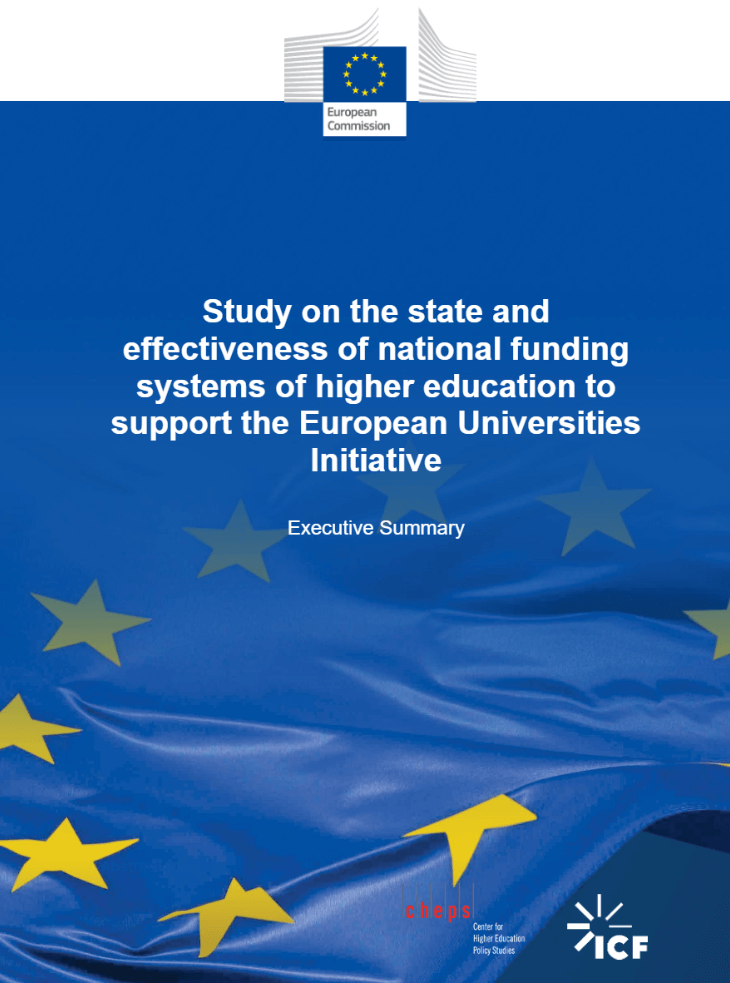Stay in the loop! Subscribe to our mailing list
On 22 March 2023, the European Commission published a new study exploring the state and effectiveness of national funding for the European Universities Initiative (EUI). The report was prepared by experts from the Center for Higher Education Policy Studies (CHEPS) at the University of Twente and ICF consulting company.
The report focuses on two major aspects:
The main findings of the report include but are not limited to:
In addition, recently all full members of European University alliances have been included in OrgReg, a reference database providing information on higher education institutions, public research organisations, research hospitals, research performing NGOs and research funding organisations. The database provides details on the composition of European university alliances, including the establishment date, the name of legal entity or geographical location. The ETER database provides further data on European university alliances including student numbers, the number of doctoral researchers, etc. The ETER and OrgReg databases are operated under the RISIS project funded through the Horizon 2020 programme.
